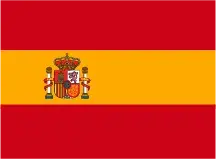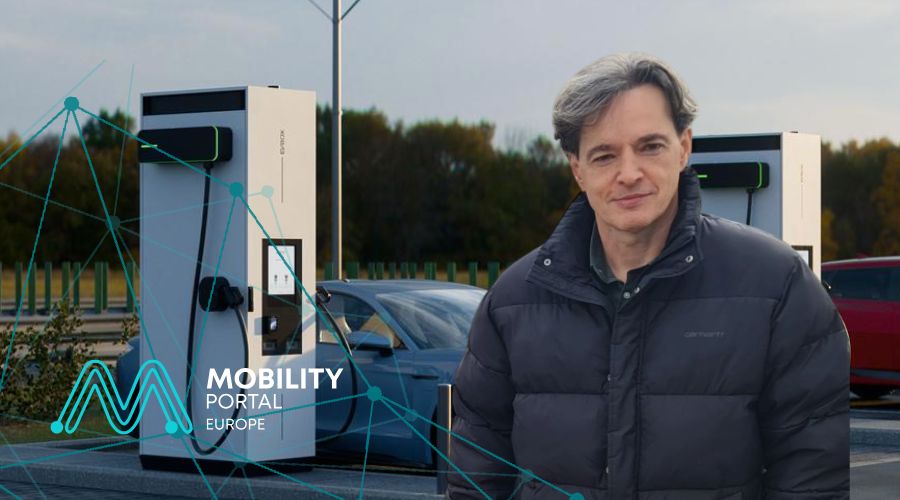When Fernando Calleja speaks, he doesn’t do so from the perspective of a newcomer. He is an Engineer by training, with a background in telecommunications, software and, of course, electromobility.
He entered the sector through the development of complex technical solutions, where hardware, cloud connectivity, mobile apps and real-time energy management all converge.
Before taking on the leadership of EVBox in Spain, he worked at firms such as ChargePoint and Virta.
Now he’s diving into the restructuring of the French eMobility charging giant, which has 18 years of experience and over 6,000 fast-charging points deployed across Europe.
“First of all, I wanted to meet the people and learn from the experience that built this success since 2007,” the new business manager tells Mobility Portal Europe.

A key step in this process was visiting the company’s headquarters in Léognan, just 250 km from Spain.
There, he was able to spend time in the laboratory and factory, gaining deep insight into the R&D team, which accounts for 40% of a total of 170 employees.
Meetings with CEO Eric Stempin were also part of his schedule during the first weeks, along with fully embracing the company’s innovation-driven approach, in both hardware and software, as well as service development.
The next step was understanding all the technical aspects of the EVBOX Troniq range.
At this point, Calleja states: “These products are the key to bringing the same level of success we’ve enjoyed in Europe to the Spanish market.”
Troniq Modular, a scalable solution from 90 to 240 kW; Troniq High Power Modular from 320 to 400 kW; and Troniq Ultra High Power, which reaches 480 kW, with plans to hit the megawatt mark.
“It’s a new era focused on ultra-fast charging,” Calleja defines, and the strategy is simple: offer scalable, modular technology that allows operators to adjust investment according to demand.
“It doesn’t make sense to install a 400 kW charger straight away if vehicles today charge at 150,” he asserts with no hesitation.
The EVBox model allows for an initial power capacity and growth based on operational needs.
30 or 40 kW modules can be added on-site by technicians without altering the base installation or upgrading the cabling.
And something must not be forgotten: in AFIR times, the ability to scale is not an option—it’s a requirement.

Zooming in on the strategy to conquer eMobility market share
AFIR will require rapid expansion of high-power chargers along Europe’s main roads, and EVBox seeks to position itself as a technically and operationally prepared provider for this challenge.
“We already have experience with this in France. We were part of the first electric truck charging network on motorways, alongside ENGIE and APRR,” Calleja notes.
In those deployments, the company rolled out 400 and 480 kW chargers, facing technical challenges ranging from power planning to dual-side access.
The European team’s vision is to bring to Spain the technical reputation that EVBox has already established in France, Switzerland and Norway.
With 170 employees, 40% dedicated to R&D, the company concentrates its production in Léognan, 250 kilometres from the border.
80% of its components are made in Europe, minimising logistics bottlenecks and ensuring local support throughout the charger’s lifetime.
Moreover, EVBox already has technicians operating in Spanish territory, ready to maintain existing equipment and handle new installations.
And that’s not all…
The value proposition includes guarantees of up to 15 years and after-sales support, ranging from commissioning to data analysis and site energy optimisation.
The commercial focus is on B2B: national and regional CPOs, corporate fleet companies, logistics operators, airports, ports and hotels.
“Comparing my electric car with a combustion one, I pay four times less per kilometre,” Calleja says, and adds: “Applied to a fleet of 100 vehicles, that’s a difference no company can ignore.”
In that context, modular architecture also becomes a financial argument.
“We find that infrastructures are being funded by CPOs themselves, expecting to recover the investment over 10, 15 or 20 years.”
Therefore, the ability to scale up power without replacing the entire unit enables business-savvy planning, not just technical thinking.
EVBox and the focus on software
All their chargers are prepared for integration with external CPMS and eMSPs via OCPP 1.6J. They offer firmware updates, remote monitoring, dynamic energy management and real-time price control.
“Where there’s a good user experience, people come back. Where it’s bad, they don’t,” the new executive concludes.
The user experience, in fact, even extends to the physical design of the equipment.

Large touchscreen displays are designed to be height-accessible, multi-language, and feature intuitive navigation flows.
Payment methods are not left behind, as all models include credit or debit card, mobile, NFC or operator apps. And all data is recorded to enable support, traceability and maintenance.
One thing is clear: the regulatory context also defines part of the strategy.
EVBox and the shift to a new era
The new phase also requires leaving behind some legacies.
AC technology, still present in some public tenders and residential settings, is no longer part of EVBox’s active offer.
“Our strategy is clear. We’re going DC. Another player can take care of the niches where AC still makes sense,” he remarks.
In parallel, the company is reinforcing its participation in tenders and institutional processes, with a particular focus on meeting all required technical certifications: AFIR Ready, ISO 27001, EN 18031, Eichrecht, among others.
In Calleja’s words, “public tenders come with long, complex technical requirements and tight budgets. The challenge is to deliver compliant solutions that are future-ready without compromising quality.”
The Spanish team is already operational. Calleja reports directly to the sales office in France and coordinates local activity with installers, integrators and strategic partners.
The UK is another market where operations were recently reactivated. In the medium term, the goal is to scale based on demand.
“We want to replicate here the reputation we have in other markets: high availability, ease of maintenance, full regulatory compliance. We know how to do it and we have the technology,” he assures.
Now, the next step is to gain ground in a market that’s accelerating and constantly changing.








